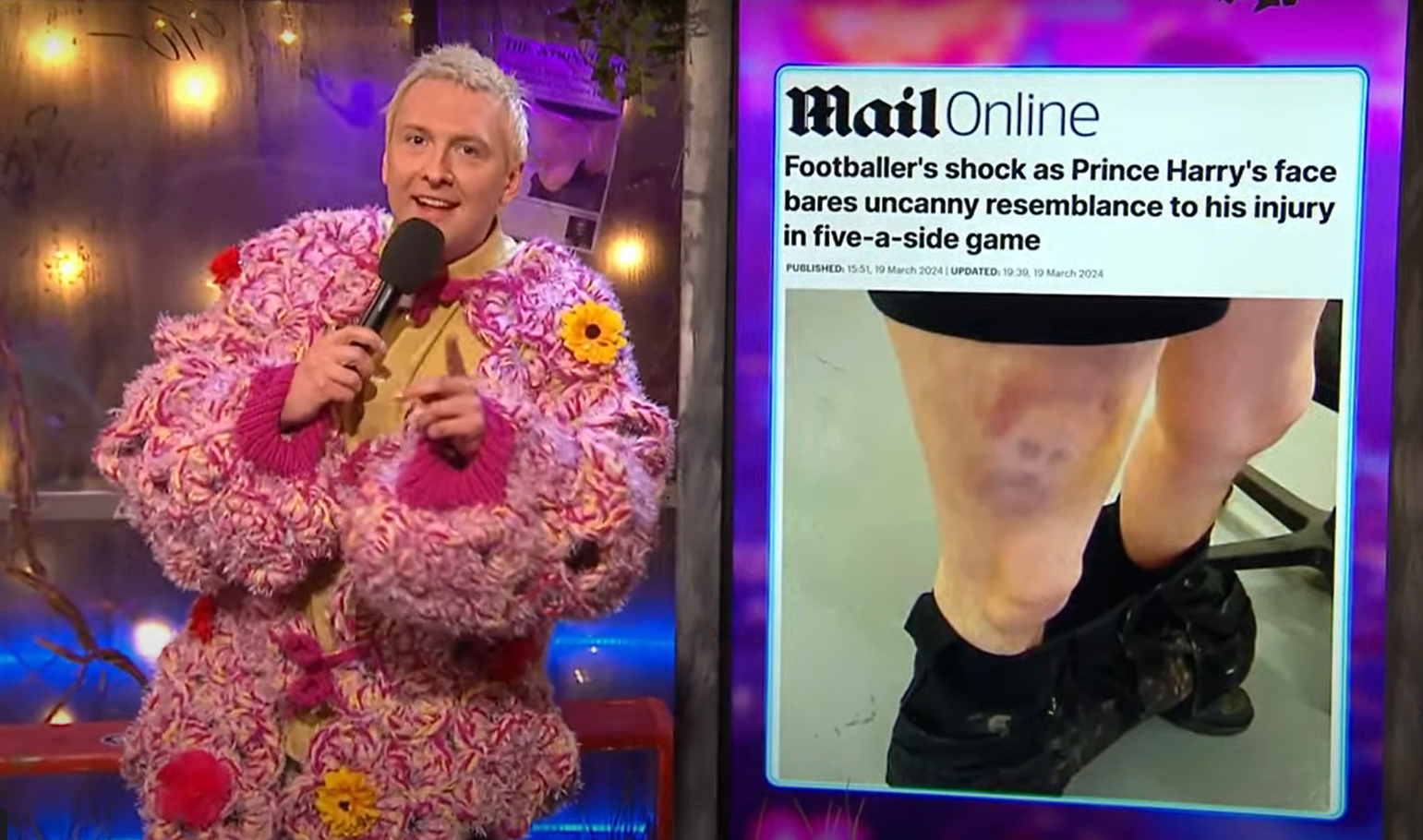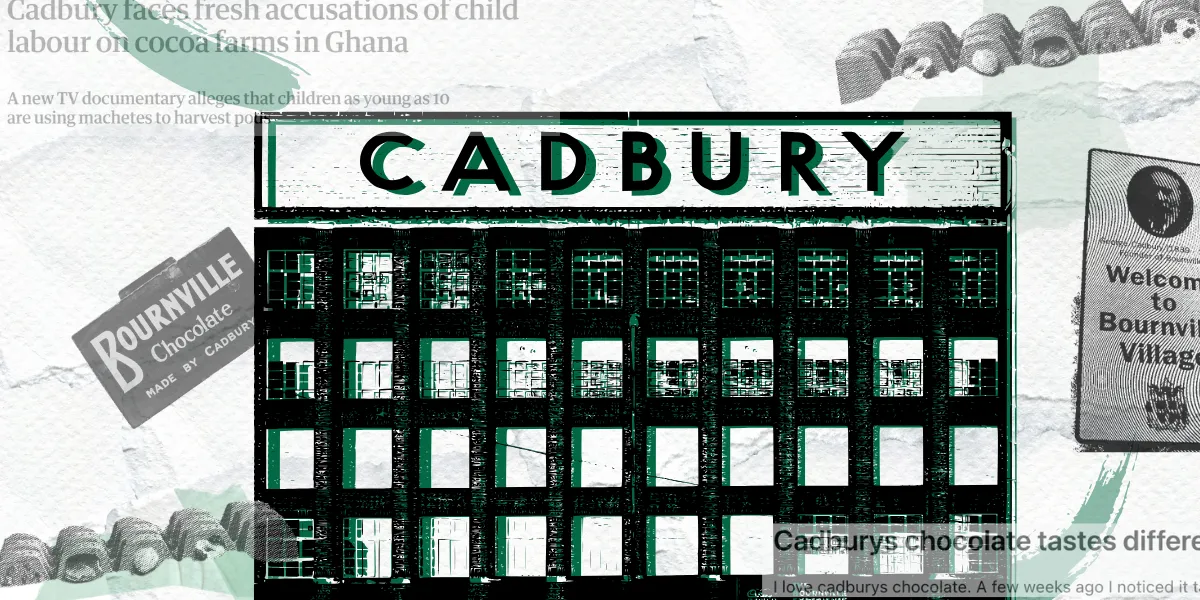Dear Patchers — I hope you’re having a wonderful and relaxing Sunday
A man with a bruise that looks like Prince Harry. A statue of Ian “H” Watkins from Steps in the Welsh town of Cowbridge. A study about men’s penis sizes. And a would-be Banksy in our very own Gay Village. Even in the ever-surprising world of local news, it felt like things were becoming particularly bizarre.
As it turned out, all four of those stories were fake. The man behind the hijinks? Who else: beloved Brummie comic Joe Lycett. Lycett planted these stories to highlight what he sees as a very serious problem: just how easy it is to dupe the media into regurgitating nonsense. “For the last month, me and my team have been planting stupid, silly fake news stories about things that never actually happened,” Lycett explained, “in the hope that they would take up space that more hateful or polarising fake news might otherwise have used.”
While some hailed Lycett’s genius, he has had a bit of backlash for his stunt too. The New Statesman was especially forthright: “This is a faux-educational, self-righteous prank that shouts about its own importance without saying anything at all.” Their argument was that the stunt proves nothing. We all know fake news exists — so who does bringing that fact to public attention serve? This merely reduces it to a punchline, without offering any sort of solution.

As someone who has worked in a newsroom where many staff members are required to publish multiple stories a day, leaving little time for fastidious fact-checking, Lycett’s stunt put me in two minds. On the one hand, he has brought a very real problem to public attention in such a way that a lecturing op-ed in a broadsheet couldn’t. On the other, would I like to see an overworked 20-something dragged over the coals for making such an error? No, obviously not.
What interests me about the affair isn't the what, but the why. For the past several decades, local newsrooms have been hollowed out across the country. Most local papers are now owned by the same three massive companies. Their strategy has been to maximise the eyeballs on their websites in order to maximise the ad revenue they receive. If you’ve ever been on a news website where reading an article is like an impromptu game of Whack-a-Mole against ugly pop-up ads, this is why.
This strategy is geared towards quantity: the more clicks, the more revenue. That’s why you see local papers printing articles with misleading clickbait headlines, and stories that have nothing to do with the regions they purport to cover (perhaps Martin Lewis’ latest utterance, or some celebrity gossip). Moreover, it means the same writers have to churn out many of these articles in a single day. In such circumstances, Lycett effectively had an open goal. When these journalists have targets to hit, why wouldn’t they publish a quick, funny news story when the information arrived in their inbox and appeared to come from a trustworthy publicity company?
This is no shade to my former colleagues at the Birmingham Mail, which is owned by one of those massive companies: Reach PLC. Many of them publish excellent work in spite of the circumstances: see Jane Haynes’ recent scoop about the racist Twitter account of Birmingham councillor Rick Payne. But I do think the business model has failed. Even after pursuing this race-to-the-bottom publishing strategy, these companies have recently made massive staff lay-offs. Local news has been cheapened — yet it’s still not making money.
The alarm bells are sounding. Over the past few months we’ve seen US Senator Bernie Sanders telling our Mancunian sister publication The Mill that the collapse of local news was a “disaster for democracy”, and former Tory leader William Hague writing in The Times that there is a “scene of utter devastation” in local news. These are figures with very different politics. But they’ve arrived at the same conclusion.
We certainly don’t claim to have one easy solution to this crisis, but we do know that unless we start collectively looking for one, a crucial part of our democracy is in serious danger. What’s more, we do believe our model — subscriber-funded journalism — will be at least part of the solution. It shifts the onus from maximising clicks to providing a service that people are willing to pay for. Which means quality.
We know that not everyone can afford to pay a local media subscription. That’s why half of our work is free to read. Many of our stories, like the widely-read piece about the rise and fall of property hotshot Gurpaal Judge, are not hidden away behind a paywall.
But to keep growing, to make a genuine impact both locally and all over the country, to make quality, nuanced, deeply reported journalism at least an option for those who want it, we are reliant on the subscription fees received by our paying members. They pay for the writers, the lawyers, the editors, the freelancers, the lighting, the tea and the instant coffee.
If you do believe in what we’re doing and want to see local journalism restored to the quality it ought to have never lost, do consider taking a chance on us. Because whatever you think of his methods, Lycett has shown that the super fast-paced model of news is flawed. If we continue down this path, then the joke will be on all of us.








Comments